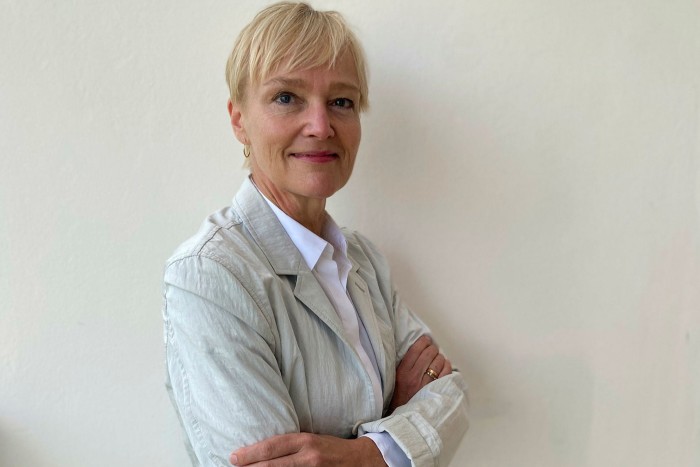Profit to purpose: Business schools find sustainability is hard to teach
All through the to start with 12 months of their MBA at the College of Pretoria’s Gordon Institute of Company Science (GIBS) in South Africa, students are required to function with neighborhood non-financial gain organisations on group tasks that deal with social troubles.
“In the previous, our aim was on driving competitiveness. Now it is about accountable administration education and learning,” suggests Morris Mthombeni, interim dean at the college. “The mining, manufacturing and financial providers corporations seem to us to generate people with the language, aptitudes and trade-offs you have to make concerning the upcoming and the current.”
In current many years, there has been a surge in awareness in organization universities about environmental, social and governance (ESG) challenges. This has mirrored shifting attitudes among the pupils, faculty and companies who have moved beyond a conventional focus on maximising fiscal returns for shareholders towards benefiting a broader vary of stakeholders.
GIBS, for case in point, is one particular of a lot more than 800 faculties to indication up to the Ideas for Accountable Administration Schooling (PRME). This initiative, supported by the UN, aims to boost the instructing of sustainability in business and management schools so that graduates have the skills to equilibrium economic development with broader aims these as the Sustainable Improvement Goals (SDGs) and local climate alter.
But despite the improved interest, educational leaders face tough issues which include how to define and prioritise the disparate expertise and values linked with ESG how to integrate them into educating, investigate and operations and the extent to which a failure to do so will undermine the upcoming of enterprise schooling.
Responsible business enterprise is now a central concern for deans, according to Mette Morsing, head of PRME and a professor at Copenhagen Company School and the Stockholm Faculty of Economics. “Twenty many years ago, I was told it was just a trend that would go away. Currently need has gone from the periphery to the mainstream,” she suggests, introducing that some additional enthusiastic faculty users question why development in organization schools has been “so gradual.”
ESG considerations have extended been essential for organization schools in Scandinavia and the Netherlands, reflecting their egalitarian traditions and environmental priorities. But now, lots of enterprise educational institutions have released electives, integrated ESG problems into their main programs, opened expert investigation centres and even founded standalone administration masters’ programmes on subjects this sort of as sustainability and the circular financial system.
Much of the present momentum has been driven by a questioning of capitalism joined to inequality and globalisation right after the 2008 fiscal disaster, developing proof of human-driven local weather change and a reflection on function, highlighted by the Excellent Resignation for the duration of the Covid-19 pandemic.
Company schools are now beginning to acquire collective motion. At the COP26 local weather summit in Glasgow last November, 8 of the primary — and usually fiercely competitive — European institutions joined forces to launch Business Universities for Local climate Leadership. The aim is to encourage additional joint investigation on weather modify, strengthen educating and enhance outreach to staff, students and alumni.
Networks of lecturers are also mobilising, for case in point setting up communities all-around liable small business analysis and impact investing and sustainable finance educating. Global accreditation frameworks like Equis, AACSB and AMBA have standards all around the societal impression of company educational institutions.
Learners are also demanding change, and some issue regardless of whether company faculties are moving speedy plenty of. “A bulk of the educational institutions however are lacking a large amount of movement,” suggests Sophie Charrois, president of oikos International, a network of college student teams trying to get to remodel economics and administration educating. “We have to have to include sustainability in a a lot more holistic way.”
Providers are also keen to see responsible organization taught in govt instruction — if only so they can recruit this new generation of workforce. Robert Strand, government director of the Heart for Liable Business enterprise at Berkeley’s Haas small business college, has observed rising phone calls by businesses for skills such as evaluation of ESG elements.
The challenge, he adds, is that the “faculty at most American business enterprise schools . . . require to capture up.”
Company colleges are making an attempt to adapt and enchantment to students’ and recruiters’ requires to embrace social values, argues Jaime Bettcher, programme manager for the Aspen Institute’s Business & Modern society Application. She cites a surge in programs for its once-a-year “ideas value teaching” awards as proof of their efforts.
“The war for expertise will be waged more than which organisations can express a authentic genuine motivation to addressing social troubles,” she says. “For enterprise educational institutions to stay pertinent, they’ll will need to redeploy their knowledge on markets and organisations to tackle a multitude of targets past just financial obtain.”
Nonetheless there is disagreement and confusion about what constitutes responsible organization schooling. “The phrases ESG indicate distinctive factors to unique groups. We have to realize how to evaluate it and keep individuals accountable,” argues Professor Glenn Hubbard, previous dean of Columbia Organization Faculty.
“I’d say it is the research for homo reciprocans: it’s about collaboration, co-generation, partnering, empathy and sharing,” claims Prof Morsing. “That’s in sharp contrast to homo economicus, which is all about attacking, battles and level of competition.”
Colin Mayer, a professor of management who prospects the British Academy’s Potential of the Company inquiry, argues for extra purposeful business enterprise that finds lucrative methods to the troubles of individuals and earth.
But Aneel Karnani, professor of method at Michigan’s Ross College of Business enterprise who teaches a training course on “business in society”, dismisses as “politically correct” the escalating declarations by deans of the centrality of societal objective in their curricula. “Business universities are not heading to make the world a superior area but should really assist company do far better,” he states.
Even for these who are more favourable to the new emphasis on obligation, there remains solid disagreement about how it is taught and what know-how will be displaced — if only so that learners can efficiently uncover work opportunities in a globe that, in places, stays ambivalent to ESG. Small business schools have grow to be a microcosm of the broader discussion in just businesses about how to determine ESG and how far it simply signifies superficial “greenwashing”.
“The most important issue is that we do not have a constant and coherent framework that men and women can simply adapt to make sustainability into their operations technique,” claims Professor Ilian Mihov, dean of Insead. “We have failed in building these frameworks. There is not more than enough study, not ample resources.”
Yet, he has built-in the topics into required classes and inspired investigate to equilibrium extra common organization faculty abilities and the newer themes. “We have to do equally: to figure out how to integrate the sustainability way of thinking into a curriculum while we teach internet present value, your regular equilibrium sheet merchandise or provide and desire.”
Without a doubt, a pragmatic tactic is the ideal way forward, argues Mthombeni of GIBS. “We believe that firmly in the principles of opposition, but liable competition. You have to compete vigorously, truthfully and responsibly for the very best strategies to prosper or you are diminishing the added benefits of innovation.”
The expanding circumstance for accountable company schooling

How can business educational facilities really encourage revolutionary methods to further more sustainable tactics?
Register for totally free
19 January | 9:00 GMT / 10:00 CET | #FTDigitalDialogues #FTEducation








